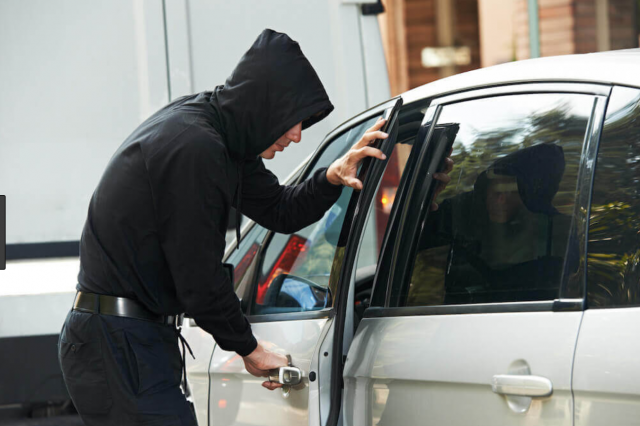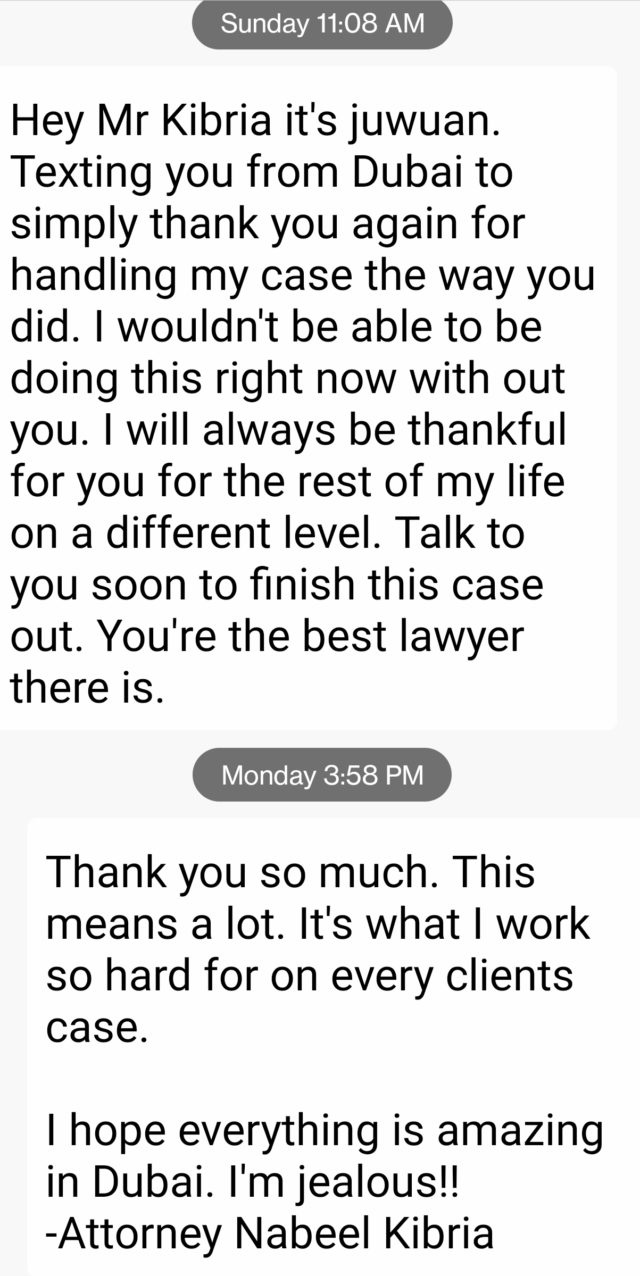DC Theft Lawyer | Larceny Attorney 20006 - Ervin Kibria Law
CALL 24/7 OR FILL OUT THE FORM BELOW TO DISCUSS YOUR CASE
Featured In






Contact Ervin Kibria Today:
Give us a call and arrange a free consultation.
Washington, DC:
800 Connecticut,
Ave NW SUITE 323,
Washington, DC 20006
Direct: (202) 689-4439
Fax: (866) 709-5280
Latest Testimony
-
I wouldn’t want to work with anybody but him especially in the case I had ! Great at responding no matter what time of day it is. Knows all his… read more laws plus much more. Great recommendation you heard it here first! Don’t hesitate.
Dylan Noble
May 17, 2023 -
Awsome experience! Definitely recommend
Nathaniel t
May 16, 2023 -
Mr.Kibria is number 1 in DC his work ethic is outstanding 💯
Hal Gaffney
May 16, 2023 -
Mr. Kibria has been simply amazing. He’s very knowledgeable. I can’t recommend him enough!
Laura Fernandez
May 16, 2023 -
Nabeel simply the best, good communication and discuss clearly the points. He has dismissed my ticket. I highly recommend him for any traffic infractions.
Mustafa Kamal Azami
May 9, 2023 -
Attorney Kibria was very knowledgeable about his job and DC laws. He kept me updated every time there were news to my case. He is a very professional Attorney and… read more he communicated every single detail of my case and took his time to negotiate the best deal for me. Thank you Attorney Kibria.
Yesenia Gutierrez
May 2, 2023 -
Known Mr. Kibria from a while through the professional world. He is hands down the best attorney anyone could possibly have in DC.
Tianni Wilson
April 23, 2023 -
Mr. Kibria was extremely helpful in our case. He provided quick responses, explained processes thoroughly, and ensured all my questions were answered. I highly recommend this law firm if you… read more need a great lawyer with excellent communication!
Mariah A
April 23, 2023 -
Definitely the best attorney in dc! Will be referring to all my family and friends.
Davon Williams
April 23, 2023 -
I googled “best lawyer in D.C.” and Nabeel Kibria was top of the list. After a little research I decided I would ask for his help on my case. Mr.… read more Kibria was extremely responsive and transparent and has remained so throughout my case. Certainly knowledgeable and confident Mr. Kibria put my worries to rest right away. I recommend, whatever your case may be, give Kibria a shout.
Carlos Garcia
April 23, 2023
What is theft in Washington, DC?
DC Code §22–3211 defines the offense of “theft” in this manner:
A person commits the offense of theft if that person wrongfully obtains or uses the property of another with intent:
- To deprive the other of a right to the property or a benefit of the property; or
- To appropriate the property to his or her own use or to the use of a third person.
The statute goes on to clarify what exactly “wrongfully obtains or uses” means:
- Taking or exercising control over property;
- Making an unauthorized use, disposition, or transfer of an interest in or possession of property; or
- Obtaining property by trick, false pretense, false token, tampering, or deception.
All this complex language really just boils down to the basic idea of theft we are all familiar with: the intentional taking of something of value from someone else. Depending on manner of the taking, the offense might turn into a different related offense—such as robbery or fraud.
There are two degrees of theft in DC: theft in the first degree and theft in the second degree. They are distinguished by the value of the property used or obtained.
1st Degree Theft involves wrongfully using or obtaining property worth $1,000 or more and is a felony. A conviction carries a maximum sentence of 10 years in prison and/or a fine of up to $25,000.
2nd Degree Theft involves wrongfully using or obtaining property worth less than $1,000 and is a misdemeanor. A conviction carries a maximum sentence of 180 days in prison and/or a fine of up to $1,000.
For a third or subsequent conviction of theft in any degree, the penalties become much harsher. The maximum sentence is increased to 15 years in prison with a mandatory minimum sentence of 1 year in prison. You may also have to pay a fine of up to $37,500. The statute also specifically notes no possibility of a suspension of sentence or parole before the 1-year minimum is served.
Unauthorized Use of a Motor Vehicle
Unauthorized use of a motor vehicle is a special type of theft. Since stealing motor vehicles is often associated with the commission of other crimes (whether to prepare for the crime or to get away after), the penalties involved in these circumstances are harsher than those for basic theft.
Per DC Code §22–3215, a person commits the offense of unauthorized use of a motor vehicle if, “without the consent of the owner, the person takes, uses, or operates a motor vehicle, or causes a motor vehicle to be taken, used, or operated, for his or her own profit, use, or purpose.”
A conviction in DC for unauthorized use of a motor vehicle carries a maximum penalty of 5 years in prison and/or a fine of up to $12,500.
If the motor vehicle was taken during the course of or used to facilitate a crime of violence, the maximum penalty is changed to 10 years in prison and/or a fine of up to $25,000. In addition, if serious bodily injury results under these circumstances, the prison sentence will be a minimum of 5 years. The list of crimes of violence in DC can be found at DC Code §23-1331(4).
For a third or subsequent conviction of unauthorized use of a motor vehicle, the maximum penalty is 15 years in prison, with a 30-month minimum sentence. You may also face fines up to a maximum of $37,500, with a $5,000 minimum fine.
DC law also includes a special case of unauthorized use of a motor vehicle, which is when you fail to return a rented or leased vehicle within 18 days after written demand for its return. The penalty for a conviction for this offense is a maximum of 3 years in prison and/or a fine of up to $12,500.
Distinguishing Between Offenses:
Theft vs Larceny vs Robbery vs Burglary
There are many theft-related offenses and it can be hard to distinguish between them all. The terms larceny, robbery, and burglary are often associated with theft, but what exactly do they mean? How are they distinguished from the offense of theft?
Larceny
Larceny is a common law crime and involves the taking of personal property belonging to another with intent to permanently deprive the owner the use of the property. Due to the focus on “personal property” and the “intent to permanently deprive,” the case law sometimes led to rather quirky outcomes. This inconsistency prompted the implementation of statutes defining the broader offense of theft.

In most jurisdictions, including the District of Columbia, the implementation of theft statutes has made the term larceny outdated. Indeed, the DC theft statutes specifically note that its definitions encompass conduct previously known as larceny.
Robbery
Robbery is essentially the combination of assault and theft. Since it is a combination of two crimes into one larger offense, it is treated more harshly than either alone and is a felony in DC.
Burglary
Burglary involves entry onto a property with the intent to commit a crime. Often, the intended crime is theft, but it does not have to be for the offense to be a burglary. For example, entering a person’s home and attempting to murder them would involve burglary, but not theft.
Getting a DC Theft Lawyer
Since theft covers a broad range of actions and can be associated with many different offenses, it is important to contact an experienced attorney right away if you are facing theft charges. The expert, experienced DC Theft Lawyers at Ervin Kibria Law are ready to help you navigate your options and zealously work your case. We will always work to achieve the best outcome for your situation. Contact us today for a free consultation.

